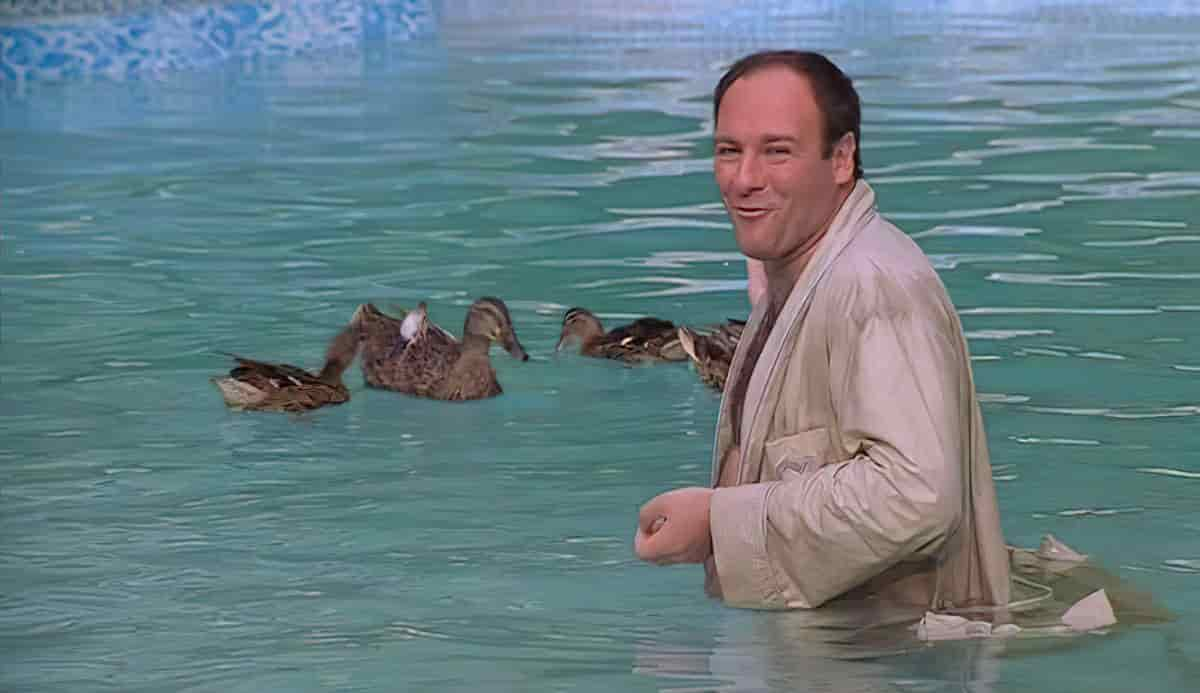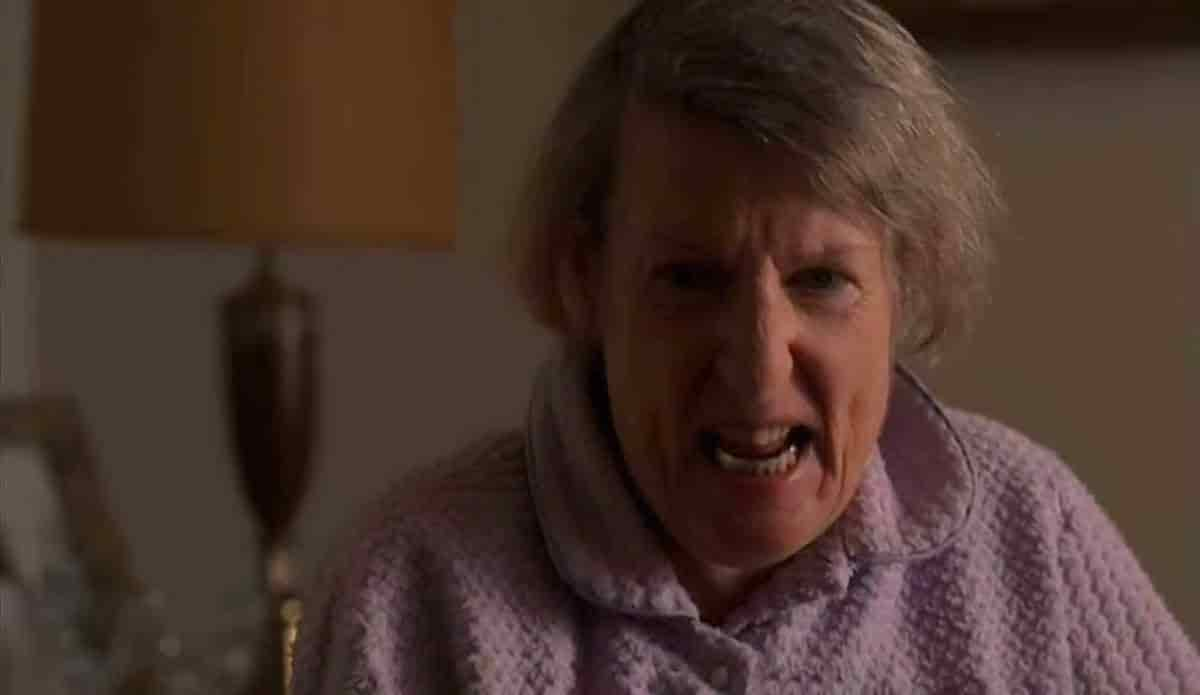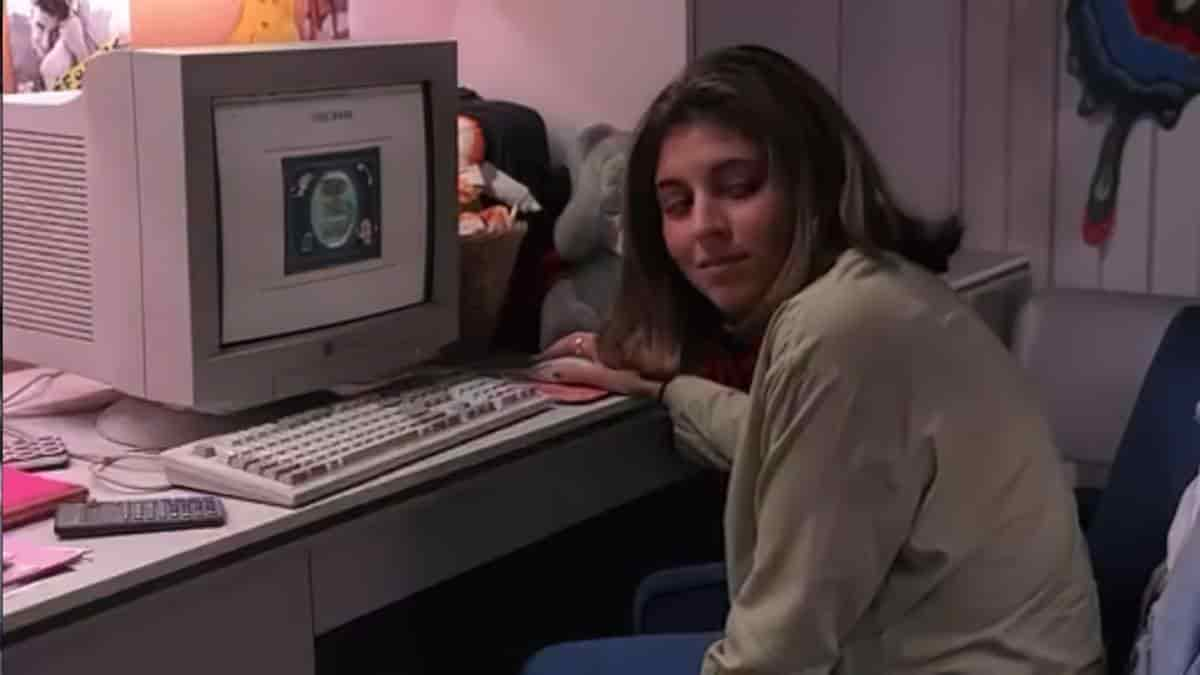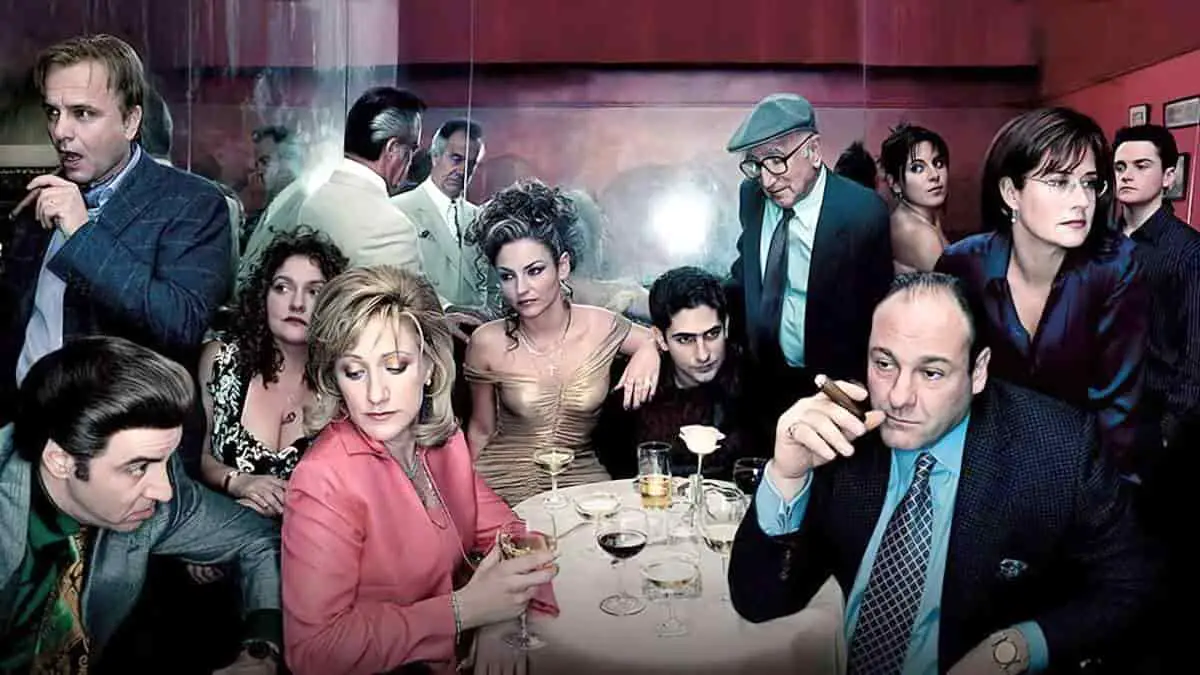It is more difficult to write an antihero than to write a hero. Before creating Tony Soprano, David Chase served his apprenticeship writing a large number of likeable characters, such as amicably divorced Norman Foley from Almost Grown and 1950s Southern lawyer Forrest Bedford in I’ll Fly Away. He graduated to the antihero from there.
If there was a single moment that signalled the new TV reality, it came only a handful of weeks after The Sopranos debuted. By that time, audiences had already begun to feel affection for this new, unusual hero. True, they had seen him involved in beating a man up; plotting insurance fraud, extortion, and arson; and committing adultery. On the other hand, he seemed to come by such behaviour honestly, what with the crazy mother.
Difficult Men: Behind the Scenes of a Creative Revolution by Brett Martin
If you’re writing an antihero you must use every trick in the book to get your audience to empathise with them early on.
Interestingly, the Sopranos writers weren’t initially brave enough to attempt an empathetic antihero and a murdering one at that, all in the pilot episode. But the show failed to garner interest with show runners. It was only when the writers had someone murdered that The Sopranos was picked up. The subsequent popularity of this show taught writers something — it’s possible to write an empathetic antihero from the very start, even when we show that character at their very worst.
The key is ’empathetic’, not ‘sympathetic’. We have to understand why a character does what they do, but in the case of criminals, gangsters and murderers, we won’t agree with their goals. The best place to find empathetic antiheroes is TV. For the length of a movie we might stick by a less empathetic antihero because we don’t have to be in their company for so long. It’s said that the age of the TV antihero began with Tony Soprano, who has been strongly influential in many dramas that have emerged since then, paving the way for characters such as Walter White. The writers of the Breaking Bad pilot used all the tricks listed here.
What tricks are those? How did The Sopranos writers ensure audiences would want to stick around Tony for six seasons? Here they are. And for an ordered list, see How To Write An Unlikeable Main Character.
Let The Audience See The Character’s Vulnerabilities
Structurally it’s a great idea to weave psychiatrist office scenes throughout The Sopranos. We get to see into the mind of a character who is naturally closed and reticent. Dream sequences also achieve this goal, but the scenes with Dr Melfi are the most important — dreams can be trippy and visually interesting but don’t really let us into a character’s mind in the same way. We are introduced to Tony when he is at the vulnerable he’s ever been in his life, probably. He’s just had his first panic attacks.
Tony is having an existential crisis. He tells us in a voiceover (ostensibly talking to his psychiatrist) that his father came in at the beginning of something big, whereas Tony feels he’s come in at the end. Death is all around him.
Worse for Tony, he’s been sent to psychiatrist by the family physician. He doesn’t want to be in Dr Melfi’s office — he’s not in control of his body, nor is he in control of his healthcare. He soon learns to manipulate Dr Melfi to his advantage and it takes a few seasons for her to catch on, but in this pilot episode, he doesn’t want to be there. This is shown with him storming out of his first session.
Tony is vulnerable with Carmela, even though it is clearly hard to be. “Here he goes now with the nostalgia,” Carmela replies after Tony tells her they’ve had a great life together. Followed by, “What’s different about you an die is you’re going to hell when you die.”
Tony makes an inappropriate but almost adorable move on Melfi — “My mother would’ve loved it if you and I got together.”
“It was just a trip having those wild creatures come into my pool and have their little babies. Oh Jesus Fvck, now he’s going to cry. Sh*t. Fvck me.”
Carmela is ready to throw wine in Tony’s face when he confesses to something, but it’s only that he’s on Prozac. He then offers words of comfort to Carmel about her relationship with her daughter. “She’ll come back to you.”
Tony puts his problems down to the leaving of the ducks. The audience knows this is displacement. For a while, we are in audience superior position — we know what Tony’s issue is before he does. When the audience is at least occasionally in superior position in terms of knowledge, that puts the character in a vulnerable position in relation to us. We’re watching a coming-of-age story.
His ultimate anagnorisis: He admits he’s afraid he’s going to lose his family. “That’s what I’m full of dread about. It’s always with me.” Tony Soprano, for all his evil, is a Family Man. This applies to a lot of people. We respect that in someone — caring for family.
Don’t Cast Beautiful People
How attached can you really get to someone whose screen-perfect body is wholly alien to your life? The professionally beautiful carry a sense of unreality with them wherever they go. The Sopranos invites a deeper sense of intimacy, its cast made up of people most of whom wouldn’t look out of place at any given family reunion or suburban barbecue.
I Look Like The Shah Of Iran
Tony’s Save The Cat Moment
This is Blake Snyder’s terminology. It’s a super simple trick, now overused in Hollywood. Show a (possibly horrible) person doing something good for a more vulnerable person or creature.
Not cats in Tony’s case, but birds. He’s wading into his pool for some reason. We watch him as Carmela does, judging him through the kitchen window. What on earth is he doing? Whatever it is, he’s probably meaning to help the ducks out. Despite the ability to turn off empathy for humans, Tony Soprano has an affinity for wildlife.

We’re actually given two save the cat moments. The next is when he visits his mother. He takes his mother the gift of a twin CD. (We can assume ‘someone lost their kneecaps’ because of it, but that’s off-screen.)
Surround The Antihero With Ungrateful Characters
The mother is not grateful to get the CD player. “What’s that? For who? For me? I don’t want it.”

Tony describes his father as ‘a squeaking little gerbil’ when he died. The mother is overbearing and now the father is dead he’s a saint. Tony is the same way — he’ll only be accepted by his own mother if he dies before her.
The Antihero Is Alone With His Pain
We’re introduced to Tony’s family. Tony Soprano is on a different wavelength from the rest of his family, who are talking about petty things. Tony’s wife doesn’t understand him, looking disdainfully at him in the pool with the ducks.
Teenage girls are often depicted as wholly unlikeable characters to contrast with their put-upon fathers. “See what this guy has to put up with?” the plot asks of us. “See how horrible my daughter is? Yet I put my life on the line for that girl every single day!” This is never said. The audience sees Meadow at her most unpleasant. That’s all we see of her. Even Meadow’s desire line is obnoxious — she’s upset because her mother won’t let her go on a skiing trip to Aspen — the most privileged bullshit whinging we expect to come out of a spoilt brat.

In fact, later, Tony is shown to be mellow and kind to his daughter in the face of her heavy criticism and teenage cynicism. In this first scene Meadow is your archetypal vain and shallow teenage girl, who won’t eat something her mother made because of the fat. Her annoyingness is doubled because of the friend she has over. (Note that Anthony Junior is a mild-mannered and reasonable kid, who doesn’t mind at all that his birthday has to be postponed. The reasonable younger brother always makes the unreasonable teenage daughter seem even worse.)
Show The Antihero Being Disrespected
Tony’s mother undermines his ability to do his job. She thinks the older men of the family know what they’re doing. She still sees Tony as a boy.
Put The Antihero In A Specific Situation We All Dislike
The physician who refers Tony to the psychiatrist also happens to be his next door neighbour. Tony is a guy who can’t enjoy a private life. We can identify with that ‘separate worlds colliding’ feeling. Most of us compartmentalise to some extent and when ‘medical world’ coincides with ‘professional world’ or whatever, we understand the feeling of being surrounded on all sides, lacking privacy, feeling exposed. We don’t have to be gangsters to understand that, though being a gangster is an extreme example of that — which is part of what makes this show so masterful.
The pilot of The Sopranos plays with really common emotions — feeling unappreciated, feeling disrespected, feeling alone with our pain — but this one is specific to The Sopranos story. We need to find a situational emotion specific to our own antiheroes’ stories, but also universal.
“Could I feel happier? Yeah. Yeah. Who couldn’t?” Tony has an old school idea of manhood and strength and pharmaceuticals. While I don’t feel this is a universal feeling — it’s more specific to men, and more applicable to men of Tony’s generation — this feeling that we could be happier but hey, this is life — is a universal one. Basically, not many of us like being asked to consider whether we’re happy or not. The asking itself means that we’re not happy in that moment. It must be one of the world’s most irritating questions.
I’m sure when scenes of important man’s work — life and death — are juxtaposed against domestic scenes full of domestic conflict (a daughter who no longer wants to have tea at the Plaza with her mother) a lot of men can identify with the feeling that everything that’s not their own work is petty bullshit. Because even if you’re not a gangster, the breadwinner of the house is indeed dealing with life and death — he’s bringing home the bacon.
Surround A Bad Character With Worse Ones
The chase through the park in which Tony is behind the wheel has an upbeat soundtrack, making it comical more than evil. But Tony does run the guy over.
But because a typical audience has a whacked relationship to violence, in which violence is acceptable under certain, specific circumstances, we accept that when Tony kicks the guy when he’s down, he’s at least looking him in the face while he does it.
Christopher is the younger generation, tells the Czech guy he kills that he’s ‘the younger generation’, putting Tony right in the middle, struggling to hold onto his position of power. According to our perceptions of fair violence, it’s more honourable that Tony kicked the gambling businessman whereas Christopher shot a guy in the head from behind after promising something else (cocaine). This makes Tony honourable by comparison.
Give An Antihero A Sense Of Humour
Tony Soprano is in the throes of depression, which means he’s going to have an ironic, wry and at times self-deprecating sense of humour, much like Daria. He’s got a lot in common with his teenage daughter, in fact. That comes out in later episodes.
Dr Melfi interrupts Tony to tell him her legal obligations. She doesn’t know where a story is going, but she has to report murders to police. The audience is shown an ironic distance between what he tells Dr Melfi and what actually happens on screen — the grown up version of Rosie’s Walk. Two completely different narratives are taking place before us. After violently kicking the shit out of a guy he tells the Doc he ‘had coffee’, which is not only ironic, but comical in its understatement. Understatement is one of the eleven types of humour listed by the creator of The Onion.
Tony’s mother is depicted as demented, being too scared to go out in the dark. Tony points out the illogical reasoning behind refusing to answer the phone when it’s dark.
A bird flies off with his penis when he recounts his dream to Melfi. The way he tells it is darkly comic. Melfi asks what kind of bird, which sounds like a non-sequitur, and like she hasn’t been listening. (Turns out a moment later she has.) Melfi is the straight-woman to Tony’s comedy.
Make The Antihero Competent
If he’s horrible, Tony Soprano needs to at least be very good at what he does. When people gather to watch Tony and his sidekick beat the crap out of the guy in the business suit, there’s a superhero quality to him. I’m put in mind of the high school scene in one of the Spider-man movies, in which a teenage crowd gathers to watch Peter Parker beat up the bully. As soon as a bit of a crowd gathers, the prestige of a character goes up. This technique is particularly common in American dramas. This must say something about the American psyche. Everything’s more important when someone’s watching you.
Be Very Clear About Why The Antihero Does What They Do
When Tony calls the victim of his beating a ‘degenerate fvcking gambler’ we’re given a reason — violence is justified, at least in the world of the story. It’s really important that we got this line. In that moment, at least, we know that Tony is owed money — maybe a lot of money — and Tony is justified in his retaliation. Maybe we wouldn’t have done that exact thing, but we empathise with his reasoning.
Tony’s discussion in the strip club shows how he feels about insurance companies and how most people feel about the American medical system — it’s set up to benefit a few while scamming the vulnerable. This is a guy who is scamming those scammers. He mentions it costs $2000 for an MRI.
Give The Antihero A Bloodline
A conservative audience has a strange, and perhaps soon to be outdated, attitude towards the importance of bloodlines. We think that ‘going back five generations’ in the one place means something. Should it? That’s a question for another time. For storytelling purposes, audiences have more positive feelings towards a character whose place in their family is firm and traceable.
Tony’s place in his family is clear after this pilot episode. Going into his mother’s house, he talks about when he was a kid — Uncle Junior used to take him to ball games. There’s a bit of a self-deprecating sob story about how Uncle Junior told him he’d never be a Boston athlete. Tony tells us that ‘it was a tremendous blow to my self-esteem’. His language of psychiatry shows us that he’s seeing himself as an extradiegetic narrator on his own youth, removed from it, understanding it. (Though he is far from understanding his present self.)
When Tony tells Meadow about the two Italian ancestors who built (but didn’t design) the beautiful church they’re sitting in, we see where Tony comes in a long line of people, some of whom were probably decent — the honest labourers, like Jesus. Because bloodlines mean something in our culture, this works.
Of course, bloodline is especially important in an Italian gangster story. But the significance of bloodline is utilised in stories of other ensembles, too.
Make The Antihero Level-headed When Needed
Tony keeps his cool and kisses his ungrateful, disrespectful mother goodbye. This is a guy who keeps his cool, whatever else we say about him. We like characters who keep their cool. Of course, this juxtaposes with the fact he later has a panic attack.
Give Him A Life And Death Battle
The pilot of The Sopranos follows a universal story structure, complete with a big struggle and a anagnorisis in its own right. In this episode (mini-story) we see Tony close to death in the hospital, almost like he’s in a morgue, except he’s going into a full-body scanning machine.
Keep Other Characters’ Legitimate Grievances Off-screen
“What a bedside manner!” Tony says to his wife, because Carmela is angry with him. She is practical and has no sentimentality. We know — we just know — Carmela is justified in her lack of sentimentality, and the way she brushes Tony off as he goes into the scanner. Let’s be real — Tony is safer in that thing than he is when he goes out of the house each day for work. But we don’t see Carmela’s reasons for being angry with her husband. Not in the pilot episode, when we are required to empathise only with the antihero. Disproportionately in stories, the female characters cop it. Livia, Carmela and Meadow are all written to be not only neutral, but non-empathetic. Carmela is at least interesting because she has a droll sense of humour and a practicality that is attractive.
Show A Fake-Ally Plotting Behind The Antihero’s Back
We are shown Livia and Junior complaining about the younger generation (Tony’s generation) in the car. “Something may have to be done Livia, about Tony.” Someone is plotting about him behind his back. Later in the series, many members of ‘The Family’ will do things behind Tony Soprano’s back, and we’ll be on board with Tony as he retaliates. For now we need to empathise with that feeling — the feeling that our friends and family are not true — they’re all faking it.
FOR FURTHER INVESTIGATION
THE LONG GOOD FRIDAY
Can a two-hour film accomplish what it takes several seasons of a TV show to do? We’re talking to you, Sopranos. Join Mike and Dan for a conversation about John Mackenzie’s The Long Good Friday (1980), a film that they call the “spiritual cousin” of The Sopranos and The Friends of Eddie Coyle. They talk about how the film avoids the intuitive trap of offering a day in the life of its protagonist and instead gives us a day of absolute crisis and the ways in which Harold is like many people having a bad day at the office. Deadwood, The Shield, and even James Joyce’s Ulysses all come into play. So get out of that abattoir and give it a listen!
Dan compares the film to the classic crime novel The Friends of Eddie Coyle, which you can find here. You might also enjoy Paul Elliott’s Studying the British Crime Film, available here.
interview at New Books Network

